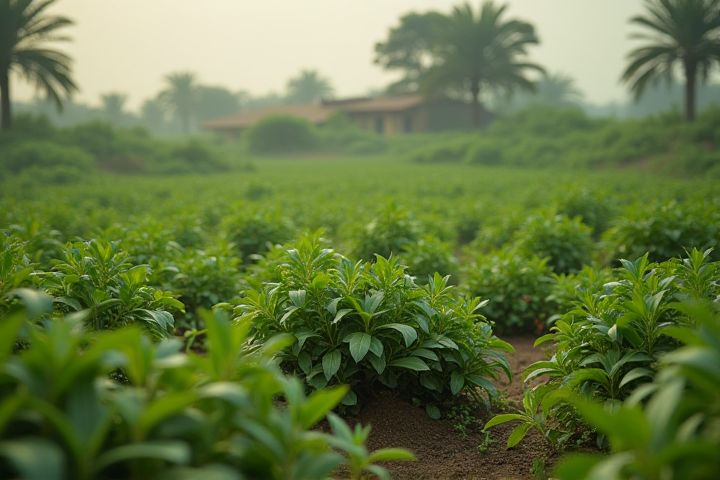
Nigeria's safety varies significantly by region, with urban areas like Lagos and Abuja generally perceived as safer compared to the northern regions affected by insurgency and ethnic conflicts. Despite its rich culture and vibrant economy, issues such as crime, kidnappings, and terrorism can pose risks to residents and visitors alike. To navigate Nigeria safely, staying informed about local conditions and adhering to travel advisories is crucial. Engaging with local communities and utilizing trusted transport options can enhance your security experience. Overall, while Nigeria offers unique opportunities and experiences, awareness and caution are essential for ensuring your safety.
Safety varies by region
Nigeria's safety landscape is complex and varies significantly by region, influenced by factors such as local governance, economic conditions, and social dynamics. In the northern regions, conflicts with insurgent groups have heightened security risks, while the southeastern areas experience relative calm, making them safer for travel and daily life. Major cities like Lagos and Abuja are generally safe but can still present challenges like petty crime and traffic-related incidents. Understanding these regional differences is essential for assessing safety levels and making informed decisions while traveling in Nigeria.
Common in urban areas: petty crime
Nigeria's urban areas, such as Lagos and Abuja, often experience a variety of petty crimes including pickpocketing, bag snatching, and scams, particularly in crowded places or during events. Such offenses commonly target unsuspecting locals and tourists alike, making vigilance crucial for personal safety. Reporting mechanisms for these incidents may vary, but engaging local authorities promptly is recommended for resolution. While the overall crime rate can fluctuate, being aware of your surroundings and avoiding risky situations can enhance your safety in these bustling urban environments.
Notorious in some regions: kidnapping
Nigeria faces significant safety challenges, particularly in regions notorious for kidnapping. Areas such as the northern states and the Niger Delta are hotspots for abductions, often driven by criminal gangs seeking ransom. Local and international travelers need to remain vigilant and informed about the security situation, as kidnappers may target individuals or groups. While Nigeria is home to vibrant culture and economic opportunities, being aware of these risks is crucial for ensuring your safety.
Terrorist activities in the north
Nigeria faces significant security challenges, particularly with terrorist activities in the northern regions. Groups such as Boko Haram and ISWAP (Islamic State West Africa Province) have contributed to widespread violence, displacement, and instability. The ongoing insurgency has resulted in a humanitarian crisis, impacting millions and creating a volatile environment marked by attacks on civilians, security forces, and infrastructure. If you plan to visit or engage with northern Nigeria, it is crucial to stay informed about the current security situation and adhere to travel advisories.
Armed robbery incidents
Nigeria has experienced a significant rise in armed robbery incidents, particularly in urban areas and along major highways. Criminal gangs often target individuals and businesses, leading to heightened concerns about safety and security. Regions such as Lagos, Abuja, and the Niger Delta are notorious for these crimes, making it essential for residents and travelers to remain vigilant. Understanding local crime patterns and employing safety measures can help you navigate the challenges posed by armed robbery in Nigeria.
Scams and fraudulent schemes
Nigeria has gained notoriety for its scams and fraudulent schemes, particularly those involving advance-fee fraud and online scams. Commonly referred to as "Nigerian Prince" scams, these schemes often entice individuals with promises of wealth in exchange for a small upfront payment. Despite efforts by the Nigerian government to combat these illegal activities, the prevalence of cybercrime continues to affect both national and international perceptions of safety. Awareness of these risks is crucial if you plan to engage with individuals or businesses from Nigeria.
Ethnic and religious tensions
Nigeria experiences significant ethnic and religious tensions that impact its overall safety. The country is home to over 250 ethnic groups, with major tensions primarily between the Muslim-majority North and the predominantly Christian South. These divisions often manifest in violent clashes, leading to insecurity affecting civilians and disrupting economic activities. When considering travel or residency in Nigeria, it's crucial to be informed about the local dynamics and current security conditions.
Political instability risks
Nigeria faces significant political instability risks that impact its overall safety. The country has experienced persistent issues such as corruption, ethnic violence, and militant insurgencies, particularly in the northern regions. The presence of groups like Boko Haram has led to heightened security concerns and humanitarian crises. When considering travel or investments in Nigeria, it's crucial to assess the local political landscape and stay informed about current developments.
Police presence but limited effectiveness
Nigeria experiences a significant police presence, particularly in urban areas, where officers are deployed to ensure public safety and manage crime. However, the effectiveness of the police is often hindered by issues such as inadequate training, corruption, and a lack of resources, which can undermine their ability to protect citizens effectively. Despite the visible police presence, many communities face challenges related to crime and insecurity, leading to concerns about overall safety. Understanding these dynamics is essential for anyone considering travel or residence in Nigeria, as local conditions can vary widely.
Advisory: consult travel advisories
Nigeria's safety situation varies by region, with some areas experiencing security challenges related to terrorism, armed conflict, and civil unrest. The northern regions, particularly around the northeast, are known for the presence of extremist groups, while cities like Lagos and Abuja generally see lower risks. For your protection and peace of mind, consult official travel advisories from your government before planning a trip. Staying informed will help you make informed decisions about your travel itinerary and safety measures.
